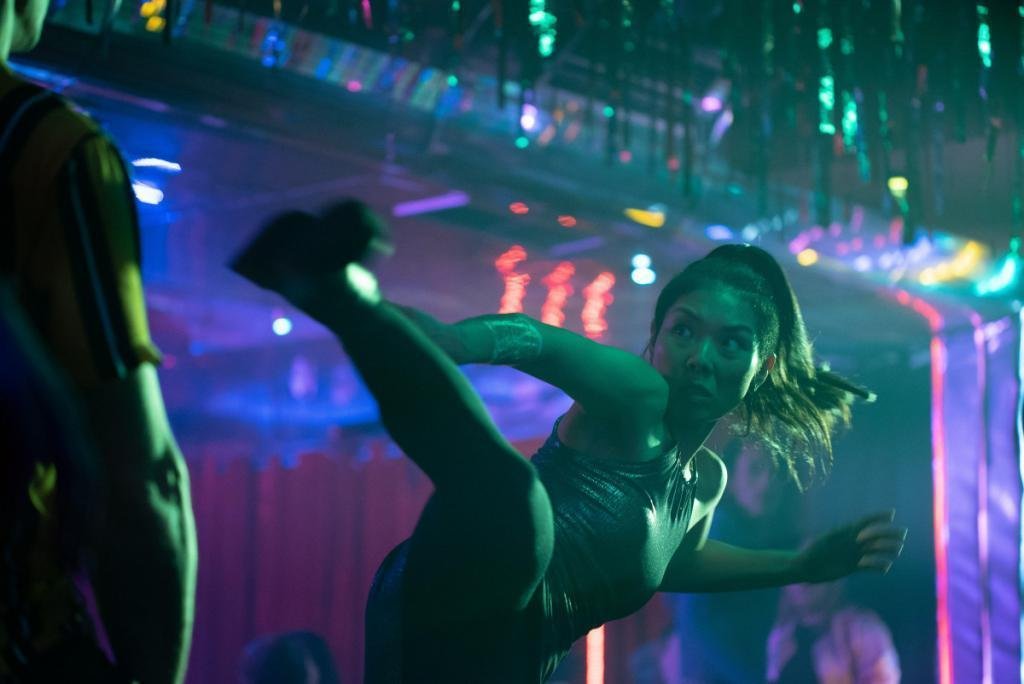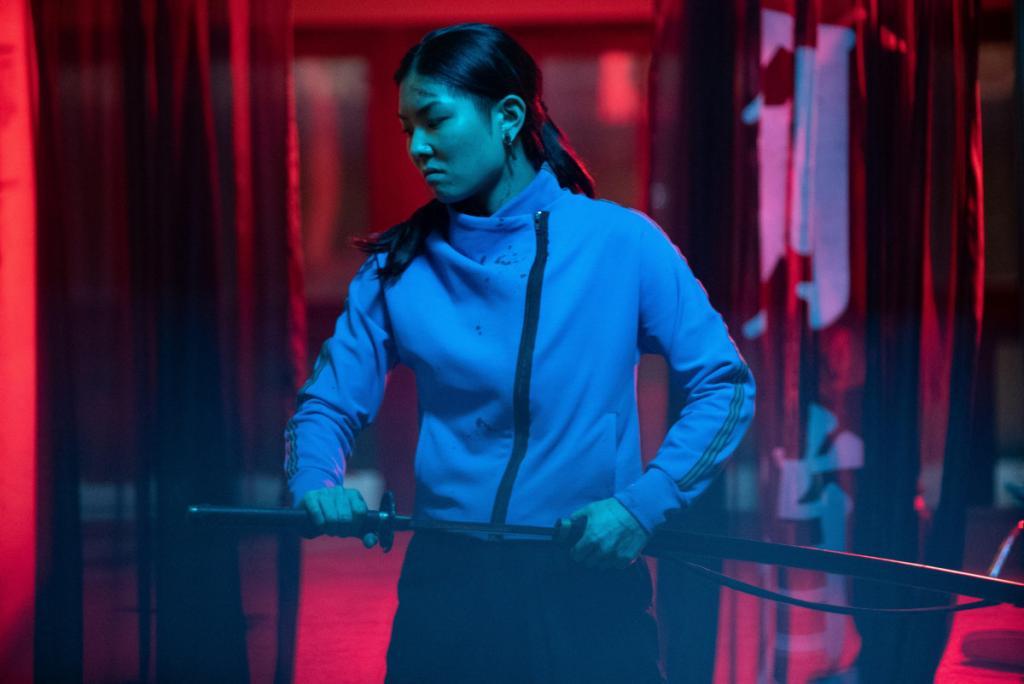
Those who joined the procession of fandom following Vicente Amorim’s string of TV and film directing gigs in the last decade, including features Dirty Hands, The Division and Motorrad may also take comfort in his latest stint at graphic novel lore. Enter Yakuza Princess, taken from the pages of Danilo Beyruth’s “Samurai Shiro” and casting none other than recording artist and actress, MASUMI, in her screen debut.
The film also stars Jonathan Rhys Meyers who takes the mantle for a key character of the comic, and to his credit, displays a kind of physicality that’s nary been seen in his films. Paired together on screen, he and our lead actress present a strong show of force that shines just a few times as our protagonists – less so for the sake of the film’s story where things get just a little more complex, before eventually coming full circle somewhat and revealing some much-needed answers.
Written by Fernando Toste, Kimi Lee and Tubaldini Shelling, our story starts with a flashback to a deadly attack on a family that leaves few of its members alive, namely daughter, Akemi (MASUMI). Flash forward to present day where a nameless amnesiac (Jonathan Rhys Meyers) awakens in a hospital, bandaged from several injuries including his face, and sedated after a violent episode whilst attempting to leave, and at one point later questioned by police about the mysterious, ancient sword that was inserted into him when he was found.
Meanwhile, Akemi, on the eve of her 21st birthday, a working sidewalk booth employee and proficient kendo student, has had enough of the idyllic and myopic life in her otherwise bustling and largely Japanese São Paulo neighborhood in Brazil, with dreams of one day leaving it all behind. Little does she know that she will soon come face to face with the truth of her past, when her path soon collides with the aforementioned amnesiac, as well as a Yakuza enforcer named Takeshi (Tsuyoshi Ihara).
After escaping the hospital, the amnesiac takes the sword and follows a trail that soon leads him to Akemi, right then as she’s struggling to fend off a trio of would-be rapists. With Takeshi armed and in toe, Akemi and her newfound good samaritan fight to escape to safety, and eventually embark on a journey together to discover the mysterious and fatal past of her family, the sword’s connection, and ultimately, Akemi’s true identity.
The more simpler approach to Yakuza Princess is to just let the film take the wheel without trying to make sense of what isn’t necessarily explained right away. Story progression definitely takes its time before picking up in key moments where Meyers’ character is on the move; indubitably, an extensive shot early on in the film featuring Meyers going full frontal, junk and all, should be more than enough to maintain viewers’ attention.
The script doesn’t allow for much dialogue between our two protagonists once their paths cross, and so their chemistry comes across as a little rigid at times. Their first meeting is abrupt and teeters on laconic at times, but they do get acquainted a little more as time passes, and it’s enough that we see the two pretty much get along and let each other know where they stand on their journey with not much else going on except survival. No romance here though, none of that.
Seeing Ihara back on screen will surely bring back some feels for those who remember him from either one of Amorim’s earlier films, or even as the vengeful antagonist opposite Scott Adkins in Isaac Florentine’s Ninja (2009). Ihara’s Takeshi is hard to pinpoint at first; he’s a hardened, torturous gangster who bares no qualms about treating his own men like the expendable underlings they are, and when we see him meet Akemi for the first time, it’s not exactly on the best of terms, and so the remainder of the film left me in a bit of a bind. When plot terrain shifts inexplicably, it definitely feels like the writing fell off a little bit somewhere.
The film eventually coalesces from the top and onward through the second half as Akemi finds out a little more about herself, soon realizing her destiny lies with the past left behind by the tragedy of her family’s murder. It leads to a bloody showdown that ultimately reveals who Akemi’s real enemies are, as well as the options she has in the power she’s come to realize.
The film’s biggest strength at any given point definitely lies in the spectacle and thrills of the action. The editing does teeters on a frenzy here and there, and so there are stumbles. Other key action moments are handled much more earnestly and with some care in guaranteeing our lead actress and the rest of the cast a viable packaging of some cool, solid fight scene work along the way. Topped off with bounteous splatter of the red stuff – the severing of limbs and copious bits of blood and other vivid violent imagery to meet the demand with sequences choreographed and coordinated by Ricardo Rizzo, Agnaldo Bueno and co-star Leu, and a performance in Masumi that rightly earns her some praise for her freshman outing, and there isn’t really much left to lament over.
A more tactful handling of the story and certain technical elements therein, and a middle section that didn’t feel as pedestrian as it does, would’ve made Yakuza Princess an amply fantastic watch through and through. The good news is, to that end, the film isn’t hugely crippled by its flaws, and performs strongly enough to stand as a commercially viable, tantalizing revenge thriller for action fans and graphic novel book dragons alike. My advice: Go in with your brain shut off and enjoy the ride.
Yakuza Princess is screening for the 25th Fantasia International Film Festival which runs from August 5 through 25.

